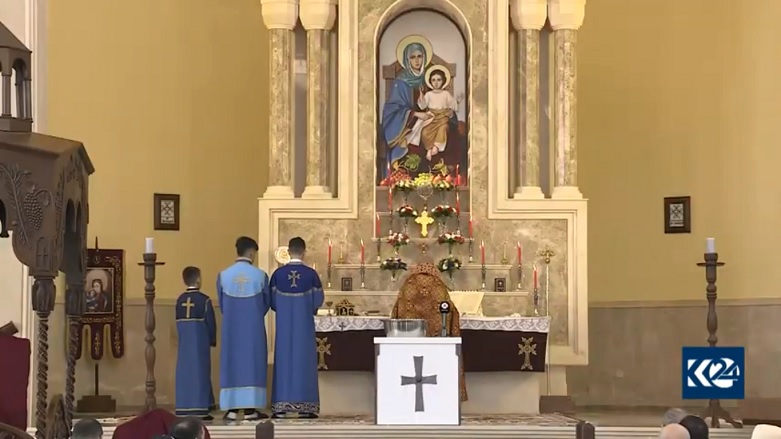WATCH: Armenians celebrate Christmas in Kurdistan Region's Erbil

ERBIL (Kurdistan 24) – Armenian Christians in the Kurdistan Region celebrated Christmas on Monday, with large numbers observing the occasion in the capital of Erbil.
Christmas in the Armenian Orthodox Church, like other Christian denominations, is a culmination of celebrations of events related to the birth of Christ and the Epiphany.
However, instead of marking the occasion on Dec. 25, like in much of the world, Armenian Christians do so on Jan. 6, along with some eastern European countries. Those belonging to the Russian and Greek Orthodox faiths celebrate the holiday on the following day, Jan. 7.
"I congratulate the Armenian people across the world and in the Kurdistan Region on the birth of Christ," said one of the parishioners as he praised the Kurdistan Region's long history of peaceful coexistence and religious diversity.
Several officials in the Kurdistan Regional Government (KRG) attended Monday's ceremony, including Minister of Interior Rebar Ahmed, who told Kurdistan 24, "We were pleased to participate in this calibration of the birth of Christ with our Armenian brothers and sisters in Kurdistan Region."
Firsat Soufy, Erbil's governor, emphasized that in the Kurdistan Region in general, and Erbil in particular, there exists a spirit "of coexistence and accepting differences, including different religions. We are proud of this privilege."
The autonomous Kurdistan Region has a parliamentary legislature with 111 seats, with quota seats reserved for Turkmen and Christian parties, as well as one specifically set aside for a member of an Armenian party.
In May, the KRG opened the first Armenian Orthodox church in Erbil's Christian-majority district of Ankawa.
The Kurdistan Region is home for over 120,000 Christians, distributed throughout the different provinces but with the majority living in Erbil and Duhok. Following the emergence of the Islamic State in Iraq in 2014, most were displaced to areas administered by the KRG, while others fled abroad.
Editing by John J. Catherine
